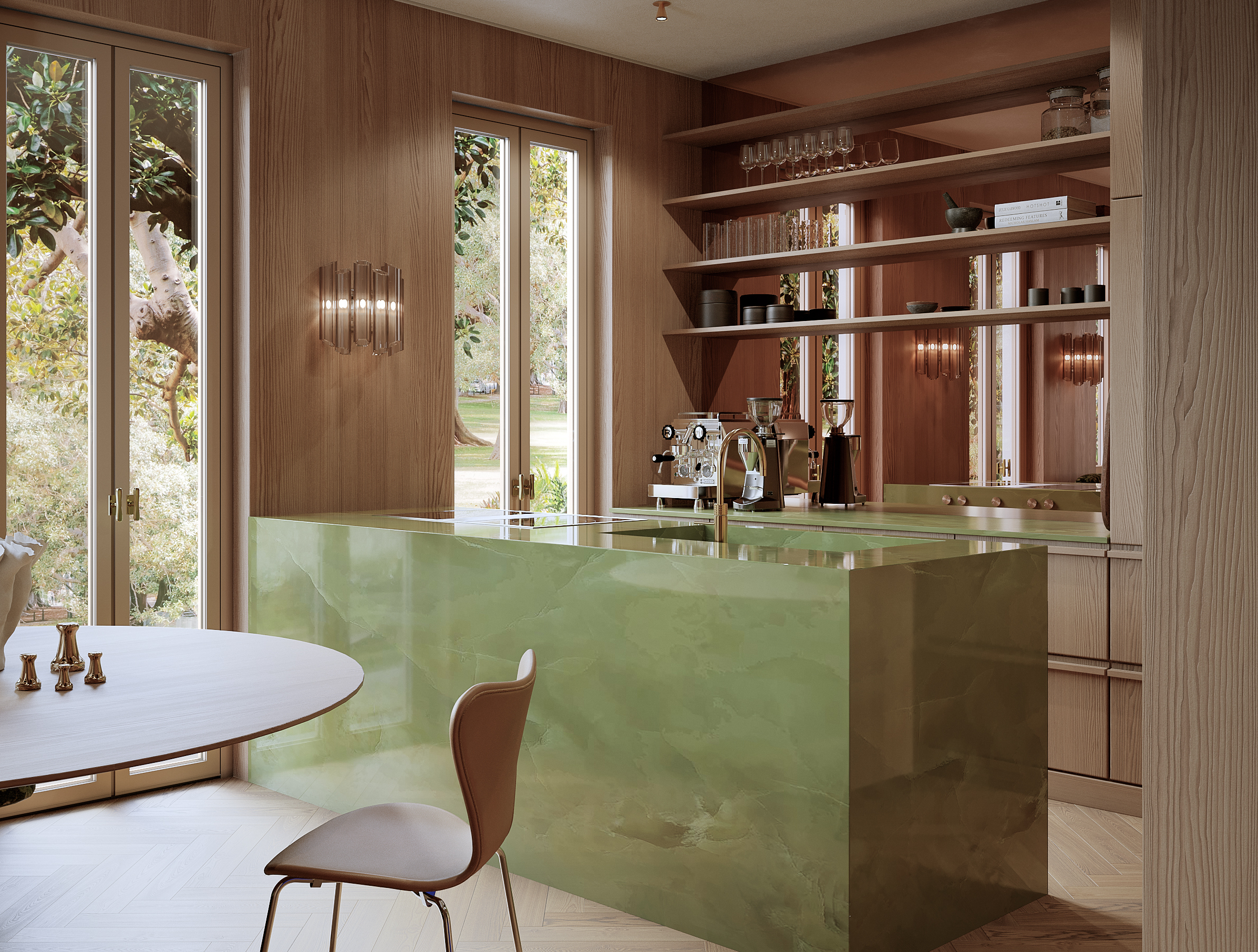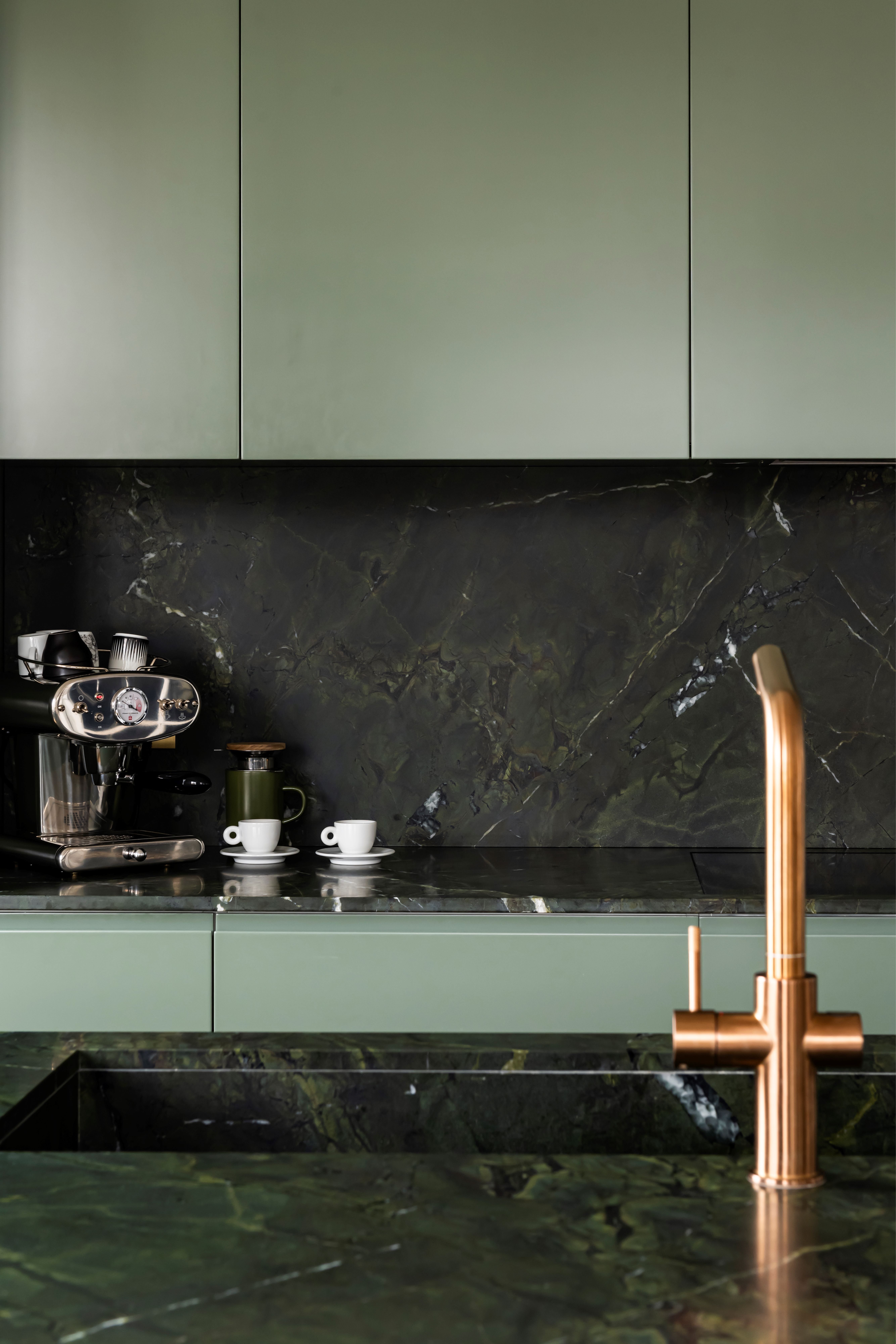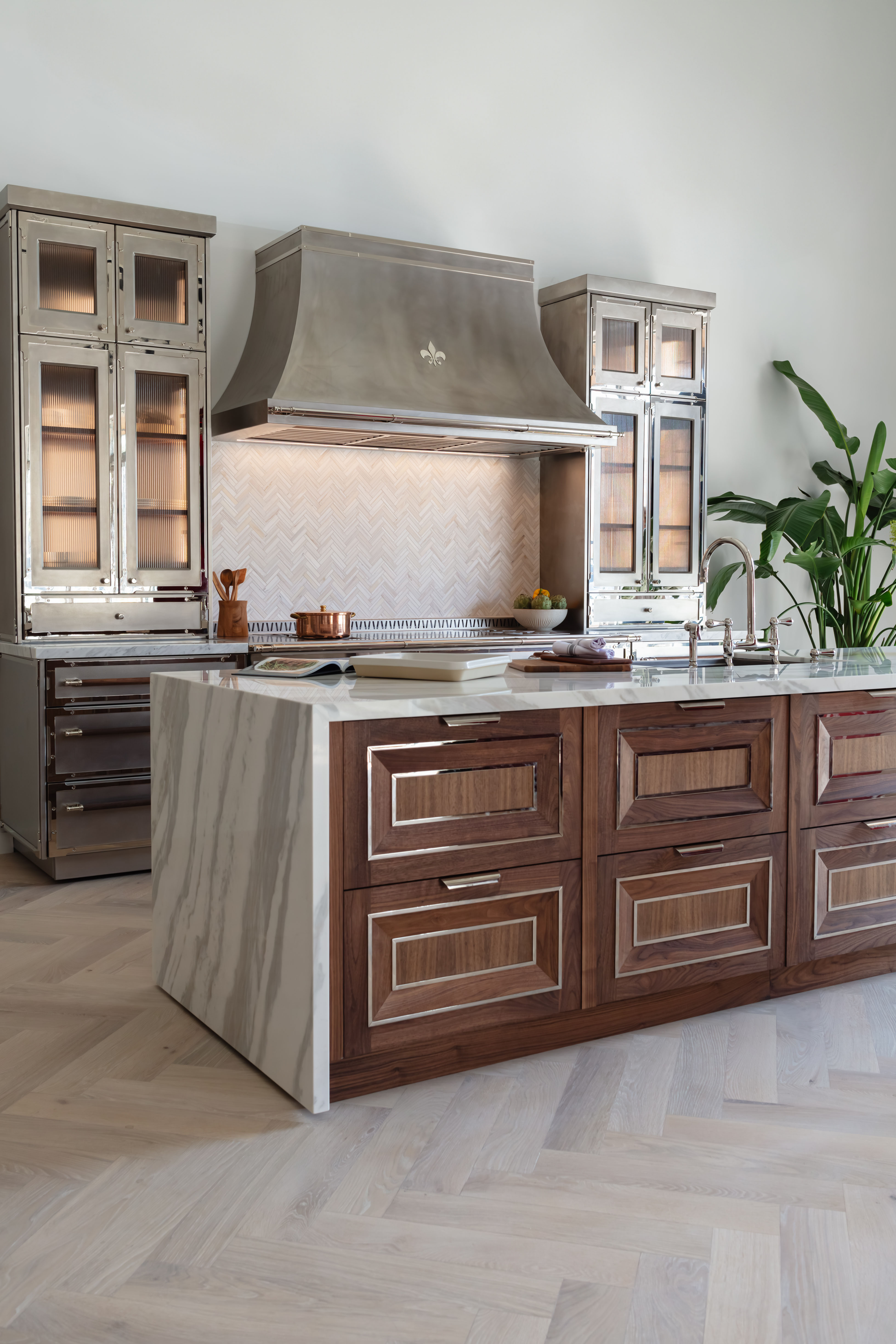
Marble is unique in its societal stature. There has been perhaps no other material that has so poetically written the history of mankind. From Michelangelo’s David to the Greek Parthenon, this metamorphic rock has been skillfully carved to create inspiring works of art that continue to stand the test of time. It is also a staple in the language of interior design. Designers have covered floors, walls, and countertops with it, utilizing a vast array of colors and finishes.
In the kitchen, marble countertops can often feel akin to the jewel in a functional and well-constructed crown. They effortlessly elevate cabinetry and appliances with their organic veining and resolute form.
Delicate yet durable, it can also be so easy to get things wrong with marble. Due to its porous nature, stains can mark this material easily, and it's a costly material, so it's important to make your choice wisely. To help you avoid these mistakes and find your perfect marble match, we’ve consulted the experts. In our guide below, they outline the importance of seeing your kitchen countertop slab in person as well as the impact your lifestyle has on your choice of material.
1. VISIT THE STONE MASON IN PERSON

No two pieces of marble are ever the same. Like any natural material, the marble countertop that covers your Pinterest board will not be available in an identical fashion when you visit the stone mason.
This presents an exciting opportunity to create a bespoke countertop that is unique to your kitchen. 'When it comes to picking marble for your home, you should go to the slab yard and pick a slab that speaks to you,' reveals interior designer, Tiffany Leigh of Tiffany Leigh Design. 'Maybe you know you want Calacatta gold marble, but slabs vary so wildly in terms of color variation, amount of veining, and background tone, that picking out a slab in person is key. Seeing the slabs is like seeing art in a gallery - you never know what is going to speak to you.'
It's also important to use this visit to find what speaks to your style, a sentiment that is echoed by the experts. 'Whether you choose real marble, quartz composite, or porcelain, I encourage you to visit a stonemason where you can be inspired and feel and touch the stones. I recommend not getting confused or overly influenced by trends, but rather trusting your own taste,' says German interior designer, Constanze Ladner.
Speaking to your local stonemason will also allow you to consult the experts and discuss any potential concerns you may have around the finish, durability, or installation of your marble kitchen countertop.
Once more, take your time to look for any cracks or fissures in the slab. Fissures are naturally occurring narrow slits in your slab and are part of the crystallized structure of the rock. They are not likely to not be an issue whereas cracks (often caused by mishandling or implied damage) are concerning as they can lead to further breakage and chipping.
2. TAKE YOUR TIME SELECTING THE COLOR AND FINISH

Your choice of color when it comes to your marble countertop may seem purely cosmetic, but it is far more impactful in reality. 'To choose the right marble for your kitchen, you first need to select the right color for the desired ambiance,' says Marie Ingrid, founder of MIID.
'Light colors bring luminosity, while dark colors add depth and character to the space. The veining is very important: all marbles have different veining, with fine or broad veins, very clear or diffuse, more or less present.'
Stronger veining marks can make your marble feel more masculine and heavy. On the other hand, delicate striations may feel more romantic and emphasize the ground color of your slab far more.
'Book-matching, whereby two pieces of marble are matched and set against each other creates the impression of an open book. This mirror-like effect is proving popular in kitchen design too, if you're looking to create a more impactful countertop, this could be the choice for you.
It is also essential to evaluate how your slab works in tandem with the rest of your kitchen scheme for a cohesive interior. Marie also highlights a key issue when it comes to the color of your marble which is kitchen lighting. Consider that your slab may look very different depending on the amount of lighting in your kitchen. Play around with various light temperatures to see which of these is most practical for you and brings out the best in your marble.
3. CONSIDER DURABILTY AND FINISH

Depending on your lifestyle and the requirements of your kitchen, your choice of marble countertop can greatly vary. 'It's important to choose marble according to its resistance, depending on whether it's to be used for kitchen islands, worktops or for credenzas - it's not the same thing,' says Marie.
'Last but not least, the finish of marble gives a completely different effect: a polished finish gives a mirror-like effect, reflecting the light, while a matte finish leaves fewer marks and is easier to maintain.'
If you’re looking for a marble countertop that will be slightly more receptive to staining, white marble is often considered the more practical choice as acidic marks (caused by spills like vinegar-based foods, citrus juices, or soft drinks) will be less visible on this surface than a darker marble.
Rounding the corners of your marble countertop is another kitchen trend that looks great, and improves durability. Sharp corners are more susceptible to chipping when compared with rounder or beveled edging. This is also a particular point for those with children as the smoother corners are far less dangerous.







